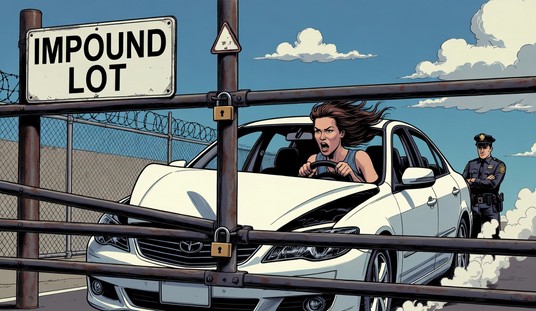Mark Lander of the New York Times describes how president Obama has ‘mastered the art of secret negotiations’. “What the Cuba, Iran and China talks have in common — aside from their cloak-and-dagger allure — are a small team of negotiators, strict discipline and tight control by the White House.” A less charitable description might use the words “deceit”, “amateurism” and “bad faith” to characterize the White House’s efforts.
They also attest to Mr. Obama’s willingness to entrust historic projects to close aides, some of whom are young and have little experience in diplomacy.
In the case of Cuba, the entire American delegation consisted of two White House officials, one of whom, Benjamin J. Rhodes, is a 37-year-old speechwriter who has worked for Mr. Obama since his 2008 campaign and has become an influential voice in the administration. The Iran and China negotiations were also led by trusted Obama aides.
Using non-diplomats helps preserve the veil of secrecy, a senior official said, because such people are less likely to arouse suspicion among colleagues or the press. The three countries with which they were negotiating, the official said, were also able to keep a secret.
Castro seems to be the big winner. The WSJ says that the White House may be intentionally giving away the store as part of a deep game. “By offering so much for relatively little, Mr. Obama may calculate that an American gesture now will lead to a larger opening once the aging Castro brothers finally go to their eternal punishment.”
He may also hope that by acting now he can prepare the way for a triumphant visit to Havana before the end of his Presidency. Mr. Obama came to office in 2009 promising a new era of engagement with U.S. adversaries, and engage he has. Perhaps his Cuban “reset” will turn out better than have his efforts with Russia, Syria, North Korea and Iran.
The administration has a talent for turning victory into defeat. It’s good news for Fidel Castro, just when his regime was teetering on the precipice occasioned by the bankruptcy of principal allies Venezuela and Russia. The president has argued that 50 years of isolation has not toppled Castro. Why topple him now that he’s on the verge of going over the cliff? Maybe because the administration wants a stable Communist dictatorship off Florida in preference to a nation ripped apart by civil war. If starving Cubans actually stage a real revolution in Havana it might be inconvenient.
Mark Trumbull of the Christian Science Monitor asks “will closer financial ties between the United States and Cuba help to promote political reform on the communist island or simply prop up a morally bankrupt regime?”
“The United States has just thrown the Cuban regime an economic lifeline,” Sen. Robert Menendez (D) of New Jersey, outgoing chairman of the Senate Foreign Relations Committee, said in a statement released Wednesday. Another senator of Cuban-American heritage, Ted Cruz (R) of Texas, used the same “economic lifeline” phrase in issuing his own lament.
But one of the benefits to secret negotiations is that the administration can completely avoid answering such knotty questions. Julie Hirschfeld Davis and Michael Gordon of the New York Times report “Obama Intends to Lift Several Restrictions Against Cuba on His Own”. He’ll do it all in his vest pocket, in the same secretive manner that he conducted the negotiations themselves.
WASHINGTON — President Obama will move as soon as next month to defang the 54-year-old American trade embargo against Cuba, administration officials said Thursday, using broad executive power to defy critics in Congress and lift restrictions on travel, commerce and financial activities.
The moves are only the beginning of what White House officials and foreign policy experts describe as a sweeping set of changes that Mr. Obama can make on his own to re-establish commercial and diplomatic ties with Cuba even in the face of angry congressional opposition.
“The embargo is a container — it’s been that way since President Eisenhower — that’s had regulations and laws put into it and taken out of it and mixed about,” said John Kavulich of the U.S.-Cuba Trade and Economic Council. “President Obama is saying, ‘I’m going to leave a shell, but it’s going to be a proverbial Easter egg — it’s going to be hollow.’”
It’s not Easter any more. The other holiday metaphor Kavulich could have used is “stuffed as full of ***t as a Christmas turkey”. Not hollow but full. Crawling with nasty surprises. For the real danger in these last minute bargains being closed with Cuba, Iran and China is that the junior presidential aids are committing the United States to courses of action that nobody fully understands. The fine print is unknown, even to those custodians of institutional memory, Old Foggy Bottom.
The administration’s approach to the Cuba deal is exactly the same as its approach to Iran. Do it in the dark. Back in October of 2014, David Sanger of the New York Times writing before the midterm elections wrote: “Obama Sees an Iran Deal That Could Avoid Congress”. Sanger described how the administration was determined to ignore even a Democratic Senate on Iran.
President Obama will do everything in his power to avoid letting Congress vote on it. … The Treasury Department, in a detailed study it declined to make public, has concluded Mr. Obama has the authority to suspend the vast majority of those sanctions without seeking a vote by Congress, officials say.
But Mr. Obama cannot permanently terminate those sanctions. Only Congress can take that step. And even if Democrats held on to the Senate next month, Mr. Obama’s advisers have concluded they would probably lose such a vote.
“We wouldn’t seek congressional legislation in any comprehensive agreement for years,” one senior official said.
‘Trust Obama and just sign on the dotted line,’ seems to be the order of the day. Short circuiting public debate with secret negotiations and deliberately ignoring the power of advise and consent carries dangers of its own. After all, “secret diplomacy” was widely blamed for the outbreak of the Great War.
A secret treaty is a treaty between nations that is not revealed to other nations or interested observers. An example would be a secret alliance between two nations to support each other in the event of war. The opposing nations would be unaware of the treaty and therefore unable to add it to their calculations, which could obviously result in a difficult situation for the party that declared war when suddenly confronted with the troops of two or even three nations. Secret treaties were common before the First World War, and many blamed them for helping spark that conflict.
After 1918 it transpired there were wheels within wheels. Checks that couldn’t be cashed. Side bets that nobody knew about. Even if there are no secret annexes to the administration’s deals, the unspoken assurances under which the agreements are concluded form an important context in which they are to be understood. What the Cubans, Iranians and Chinese think they are entitled to — what they expect — is important, especially when nobody else knows what it is. It’s an accident waiting to happen.
For it is the context, not the text, which the administration wishes to be determinative in the relationship. It wants to turn legislation into hollow “Easter Eggs” and pursue goals not yet vouchsafed to the State Department or the legislature, though clearly known to Ben Rhodes and Fidel Castro.
The administration is clearly creating what economists call the principal-agent problem. Obama wants to sign a blank check on behalf of the United States without telling anyone what he’s buying.
The principal–agent problem or agency dilemma occurs when one person or entity (the “agent”) is able to make decisions that impact, or on behalf of, another person or entity: the “principal”. The dilemma exists because sometimes the agent is motivated to act in his own best interests rather than those of the principal. The agent-principal relationship is a useful analytic tool in political science and economics, but may also apply to other areas.
Unless there is complete transparency between the principal and the agent, there is always the danger an agent will do things contrary to the client’s interest yet which benefit himself. Mastering the art of secret diplomacy is not unlike learning to cheat at cards. It’s a sign of the administration’s incompetence and desperation as much as anything else. The best kind of card game is where all the cards are on the table.
Otherwise the other players at the table may suddenly notice that that something’s not right with the game. That’s how miscalculations begin, but it is not always how they end.
Then I ducked my head, and the lights went out, and two guns blazed in the dark,
And a woman screamed, and the lights went up, and two men lay stiff and stark.
Pitched on his head, and pumped full of lead, was Dangerous Dan McGrew,
While the man from the creeks lay clutched to the breast of the lady that’s known as Lou.
Secret diplomacy may not be all its cracked up to be.
Recently purchased by readers:
The Passing of Armies, An Account Of The Final Campaign Of The Army Of The Potomac, Joshua Chamberlain
Bourbon for Breakfast, Living Outside the Statist Quo (LvMI) [Kindle Edition]
The Mantle of Command: FDR at War, 1941-1942 [Kindle Edition]
The Resurrection of Jesus, A New Historiographical Approach [Kindle Edition]
Leatherman 830850 Skeletool CX Multitool
World War Three 1946 – Book One – The Red Tide – Stalin Strikes First [Kindle Edition], alternative history
Recommended:
Coleman 8-Person Red Canyon Tent
A Box of Sand: The Italo-Ottoman War 1911-1912, [Kindle Edition]
The Great Siege, Malta 1565. Suleiman the Magnificent vs the Knights of St John
The Battleship Builders, Constructing and Arming British Capital Ships
In the Shadow of the Sword, The Birth of Islam and the Rise of the Global Arab Empire
Did you know that you can purchase some of these books and pamphlets by Richard Fernandez and share them with you friends? They will receive a link in their email and it will automatically give them access to a Kindle reader on their smartphone, computer or even as a web-readable document.
The War of the Words for $3.99, Understanding the crisis of the early 21st century in terms of information corruption in the financial, security and political spheres
Rebranding Christianity for $3.99, or why the truth shall make you free
The Three Conjectures at Amazon Kindle for $1.99, reflections on terrorism and the nuclear age
Storming the Castle at Amazon Kindle for $3.99, why government should get small
No Way In at Amazon Kindle $8.95, print $9.99. Fiction. A flight into peril, flashbacks to underground action.
Storm Over the South China Sea $0.99, how China is restarting history in the Pacific
Tip Jar or Subscribe or Unsubscribe to the Belmont Club










Join the conversation as a VIP Member